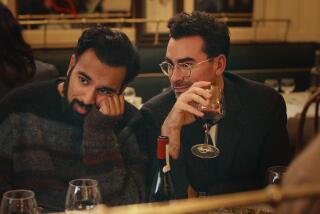Chandra Levy murder trial unlikely to answer many questions
- Share via
Reporting from Washington — The disappearance of Washington intern Chandra Levy transfixed the nation, tangled a California congressman in scandal and left Washington shocked and scared. Nine years later, a suspect will finally go on trial.
Jury selection will begin Monday in the case of Ingmar Guandique, 29, who prosecutors say killed Levy on May 1, 2001, after attempting to sexually assault her while she was jogging on a remote trail in Washington’s Rock Creek Park. But the trial of the Salvadoran immigrant is unlikely to reveal answers to many details surrounding Levy’s death, and legal experts say there could be further anguish for Levy’s parents because a conviction is no sure thing.
There are no direct witnesses to the assault on Levy nor DNA evidence connecting Guandique to her death. Court filings suggest that prosecutors are relying on statements the defendant made about Levy to a fellow inmate as well as his admitted assaults of two other women in Rock Creek Park.
“It’s going to be an interesting trial,” said Stephen Saltzburg, a George Washington University law professor and former deputy assistant attorney general in the criminal division of the Justice Department. “The prosecution will have the burden of proving guilt without physical evidence — which is a challenge — and the defense will have an opportunity to go after some of the defects in the investigation.”
Guandique was charged with Levy’s murder last year while serving a 10-year sentence for assaulting the two women at knifepoint in Rock Creek Park around the time of Levy’s disappearance.
Saltzburg said the timing and location of those assaults and a photo of Levy found in the defendant’s cell could bolster the prosecution’s case.
At the time of her death, Levy, 24, had recently finished her graduate studies and an internship with the Bureau of Prisons. She had planned to return to her hometown of Modesto, Calif., where her parents, Robert and Susan Levy, still live.
Thirteen months after Levy disappeared, her remains were discovered on a secluded slope in Rock Creek Park. The prosecution acknowledges that police botched the search, losing nearly all forensic evidence because of a miscommunication over where to look. An autopsy revealed a cracked skull, but medical examiners were not able to determine what killed Levy. The intern’s death was declared a homicide based on the circumstances of her disappearance.
Levy’s disappearance gained national attention after reports surfaced that she was having an affair with her congressman, Gary Condit (D-Ceres). Following Levy’s disappearance, investigators looked into accusations that the congressman was having an affair with her.
Police and the FBI interviewed Condit several times but never declared him a suspect. The once-popular congressman lost his bid for reelection in 2002. Condit ran two Baskin-Robbins franchises in Arizona until losing a dispute with the company in November 2008.
In 2005 Condit received an undisclosed amount and an apology from Vanity Fair magazine in a defamation lawsuit. In 2007 a judge dismissed Condit’s defamation suit against the Sonoran News, a Phoenix-area newspaper.
During the final pretrial hearing Thursday, Guandique sat with his head bowed, eyes darting back and forth as he intently listened to the Spanish translation through headphones.
Tensions in the case have centered on the prosecution’s reliance on secondhand witnesses. Discussions in court suggest that the prosecution will introduce a cooperating prison inmate to whom Guandique allegedly confessed his involvement in Levy’s death. Guandique has not confessed to police. “The credibility of the snitches is going to be absolutely critical because of the absence of physical evidence,” Saltzburg said.
Cooperating witnesses are often motivated to provide the government with information in order to receive benefits such as reduced sentences or better accommodations, Saltzburg said.
Testimony by fellow inmates is one of the leading causes of wrongful convictions in the United States, said Justin Brooks, a criminal defense attorney and director of the Californian Innocence Project, a group that works to overturn wrongful convictions.
Susan Levy, who has long pressed for justice for her daughter, will be allowed to attend the entire trial, even though she will likely be called as a witness. The defense expressed concerns that Levy’s testimony may be influenced by what she hears during the trial. Superior Court Judge Gerald I. Fisher said such concerns could be eliminated by cross-examination.
More to Read
Sign up for Essential California
The most important California stories and recommendations in your inbox every morning.
You may occasionally receive promotional content from the Los Angeles Times.









